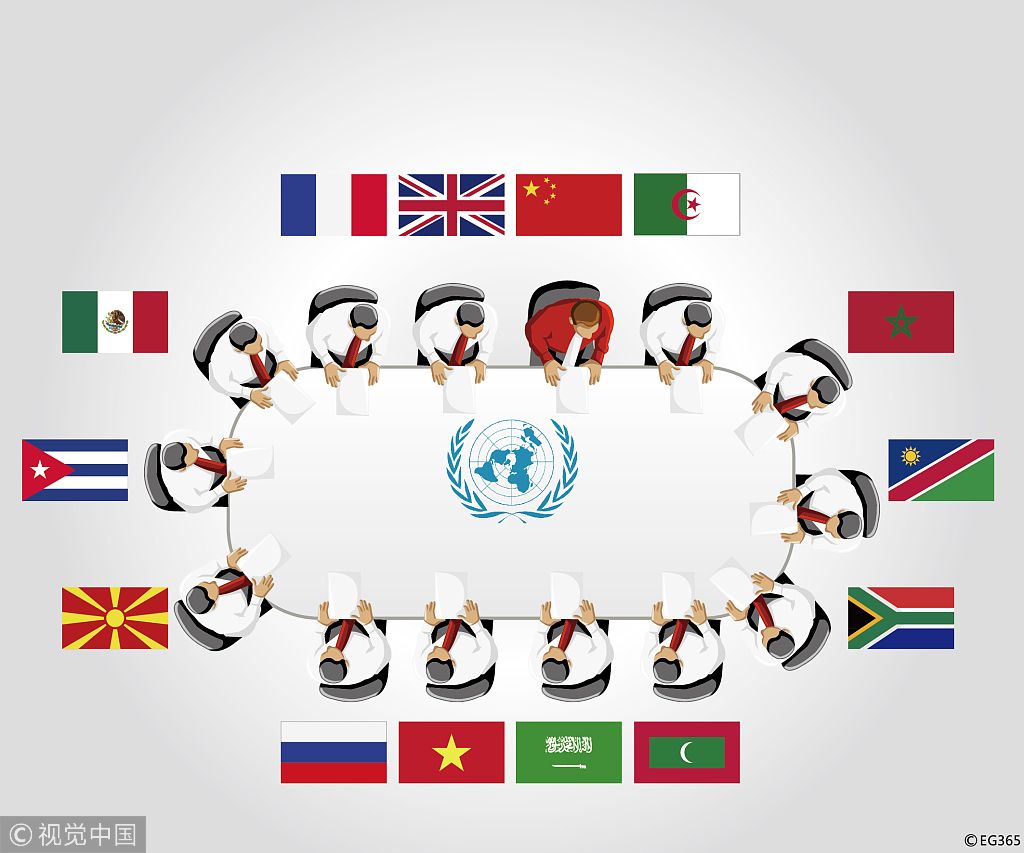China's human rights progress is crystal clear


Editor's note: A seminar on reform and opening-up and China's human rights progress was jointly held by the China Society for Human Rights Studies and the publicity department of the Hubei Provincial Committee of the Communist Party of China in Wuhan, Hubei province, last week. Following are excerpts from the presentations made by five scholars at the seminar:
Progress made in human rights
As the largest developing and socialist country, China has blazed a trail in the development of human rights with Chinese characteristics. The right to development is the top priority for China when it comes to the human rights cause, because its fulfillment makes possible a higher level of development in human rights.
During the 40 years of reform and opening-up, China has made tangible achievements in human rights. To name a few, it has provided food for more than 20 percent of the world's population with less than 10 percent of the world's arable land and lifted about 800 million people out of poverty. Besides, it has built the largest social security net in the world and helped increase citizens' average life expectancy to 76.3 years, which is among the highest in developing countries. China has vowed to build a moderately prosperous society in an all-round way by 2020, by among other things lifting all rural poor out of poverty, which in turn would greatly promote the development of human rights in the country.
More important, China has actively shouldered the responsibility of helping other developing countries advance their human rights cause, thus facilitating the realization of the right to development for all human beings. Also, China has contributed to world peace and development through its active participation in peacekeeping operations and assistance toward international refugees.
One of the brightest spots of China's human rights development is that it has strengthened the protection of human rights, by constantly improving the rule of law. China also has inscribed respecting and safeguarding human rights in the Constitution while enacting laws that are directly related to human rights protection such as the law on State compensation and administrative procedural law.
As such, China's human rights practices show that a model of human rights which is applicable to all countries does not exist, and should not be what humankind should strive for. A human rights development path that suits a country's own conditions and benefits its people is exactly what China has proposed and contributed to the international community.
He Miao, a research fellow at the Institute of Human Rights, Wuhan University
Legal protection for human rights
The legislative guarantee for China's human rights has gone through three historical periods. The rule of law and protection of human rights continued to improve from 1978, when reform and opening-up were launched, to 1991, when China issued its first white paper on human rights. After the publication of the white paper, the significance of human rights in political and social life has gradually been recognized, leading to the stipulation on respecting and safeguarding human rights in the reports of the 15th, 16th and 17th National Congress of the Communist Party of China. Particularly noteworthy is the fact that "China respects and safeguards human rights" was enshrined in the Constitution in 2004.
Through the three historical periods, the protection of human rights and legal construction were generally combined. After that, the report of the 18th National Congress of the CPC in 2012 proposed to advance law-based governance and further promote the respect for and protection of human rights. And the 19th Party Congress report in October 2017 enhanced the legal protection of human rights, demonstrating that the protection of human rights and legal construction have been integrated.
Chen Youwu, the vice-dean of the Institute for Human Rights Research, Guangzhou University
International exchanges
In terms of international exchanges and cooperation on human rights, China has made the following breakthroughs since 2013.
First, the concept of building a community with a share future for mankind, written into United Nations resolutions, including the resolution titled "Promoting Mutually Beneficial Cooperation in the Field of Human Rights" passed on March 23, has become an important part of international human rights discourse.
Second, the idea of "development promotes human rights" has also been incorporated into the international human rights discourse mechanism. Last year, the UN Human Rights Council adopted a resolution proposed by China titled "The Contribution of Development to the Enjoyment of All Human Rights", recognizing the enormous contribution of development to human rights progress.
And third, China has established a new high-level platform for human rights exchanges and cooperation with other developing countries, the South-South Human Rights Forum, which is expected to encourage developing countries to participate in global human rights governance and increase their say in international human rights discourse.
Looking ahead, China is set to make more breakthroughs in its human rights exchanges with the rest of the world.
Luo Yanhua, a professor at the Institute of International Relations, Peking University
More cooperation needed
Thanks to economic globalization, domestic political and cultural issues are becoming increasingly globalized, so are the development and protection of human rights. China adjusted its foreign strategy on human rights in the 1990s, and since then it has vigorously participated in international human rights activities. It has joined 25 international human rights conventions, including the International Covenant on Economic, Social and Cultural Rights and the Convention on the Elimination of All Forms of Discrimination against Women, significantly advancing the country's human rights cause.
True, the conflicting views of the US-led Western countries, to a large extent, helped deepen China's understanding of human rights issues and accelerate domestic studies on human rights. But the Western countries have also distorted China's international image when it comes to human rights.
Now that China's national strength and global influence are growing, it should take a more active part in international cooperation on human rights and thus enable the rest of the world to analyze its progress in human rights objectively and comprehensively.
Zhang Guobin, secretary-general of the Charhar Institute
Big role for social organizations
As a byproduct of reform and opening-up, Chinese social organizations mirror the progress China has made on the human rights front. These organizations have not only facilitated domestic economic and social development, but also engaged in extensive international cooperation, which has helped deepen other countries' understanding of China's human rights reality.
So China should encourage social organizations to play a more active role in exchanges with the world, because foreign ears are more receptive to the voices of the people than to official statements.
Besides, a nongovernmental discourse mechanism with Chinese characteristics should be established to expand the exchanges with the international community in a language that is more easily understandable and thus well received. In other words, the social organizations can play a bigger role in facilitating China's human rights exchanges with other countries.
Fan Guifen, section chief of Domestic Coordination Office, the International Liaison Department of the Central Committee of the CPC


































